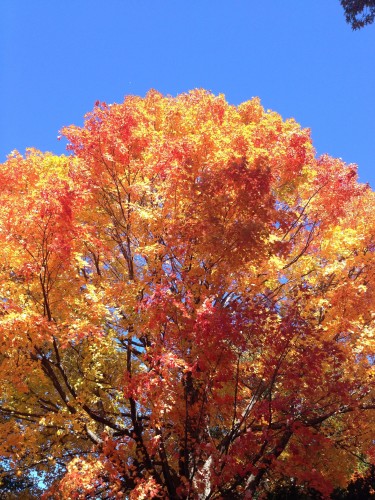
I had a difficult weekend. For reasons that I understood and those that I did not, by Sunday afternoon I felt raw and exhausted and emotional and cranky. Matt and Grace went off to an afternoon of soccer games, and Whit and I headed to do a bunch of errands. I was aggravated and short, and even as I snapped I knew that I was trying to head off a tide of sorrow. After returning a couple of things, driving home in a clear, perfect fall afternoon, I suddenly turned into the local cemetery. We drove back towards the tower that is one of our favorite places.
As we wound through the cemetery towards the tower, I noticed the tree above. I gasped, pulled over, rolled down my window, and took the picture. I think it’s my favorite of this entire fall. Isn’t that always the way? The most off-hand moments, the things we notice as we’re passing by, the mundane thing our son said after the bath on a Tuesday. These become our favorite, our most cherished. I heard the reminder: pay attention.
We climbed the tower, and the views were beautiful, but there were lots of people around. Whit pulled on my hand and whispered in my ear, “Let’s go. Maybe there aren’t any people at the fairy stream.”
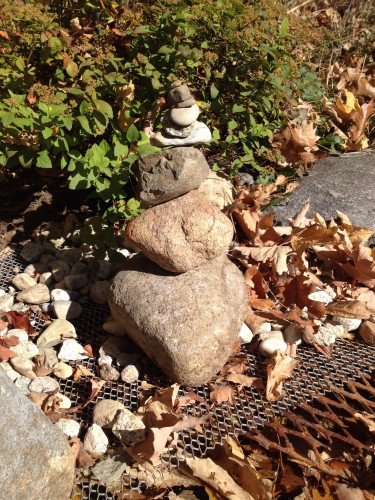
The fairy stream was empty, and so I perched on a rock and watched Whit as he began building cairns. This is one of his favorite things to do lately. My eyes filled with tears behind my sunglasses and my face crumpled as I began to cry in earnest. I looked away, not wanting Whit to see. There was a knot over my heart that felt like nothing less than all of life – catastrophe and beauty, loss and joy. I looked up at the blue sky and listened to the wind rustling the trees around us and to the gentle burble of the stream.
My breath was ragged. I blinked rapidly as the blue sky swam in my eyes. Something physically hurt in my chest. This is what heartache is, I thought.
“Mum?” Whit’s voice broke into my thoughts. I looked at him but he was concentrating on his rocks. “You could meditate to this sound,” he offered as he balanced a small, flat stone on another rounder one. “You know, like the waves on calm dot com.”
I didn’t trust my voice not to waver so I just nodded when he glanced up. I watched him and he continued stacking rocks, watching them fall, and starting again. I don’t know how long we sat there, but eventually I became aware of the snarl where my heart is easing slightly. I kept breathing, watching the yellow leaves above me dancing in the wind.
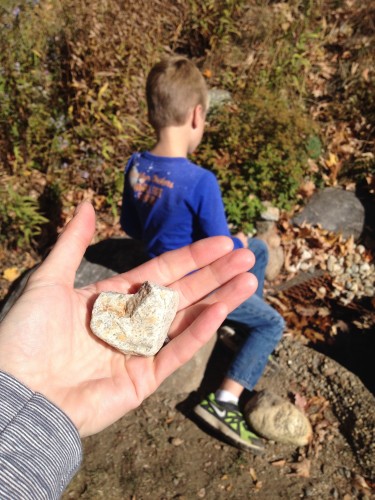
“Mum! Look!” Whit held out a rock. I smiled when I saw that it was heart-shaped, and he held it up to the left side of his chest. “We should bring this back for Grace.” He handed it to me and I said, “Good idea,” my voice normal now.
How astonishing this world is, I thought, as I sat under a cornflower October sky and watched my son balance rocks on top of each other. It makes me so weary, always being open to the sorrow that beats right underneath the surface of every day, but I don’t know any other way to live. I cry so often, and I’m prone to having my breath literally knocked out of me by the world’s sharp edges, but I can just as easily feel the wind on my skin, marvel at the light on leaves, and feel the radiance and majesty of this life pulsing through my veins alongside my own blood.
I am an extremely porous person; this unavoidable truth manifests in so many ways in my life, big and small, bright and dark, apparent and invisible. My wound allows me to live in a state of near-perpetual wonder. Every single day contains grandeur and terror. I write about this over and over again, but apparently I still need to learn it. On a day when so much felt so hard, all I had to do was sit in the sun and listen to the quiet bubble of a familiar fairy stream and watch my son working with rocks. The world ministered to me. Even when I feel sharp and heavy things inside of me, there is still this, this splendid, beautiful, broken world, this array of ordinary and startling riches, as bright as red leaves against the blue sky.
There is still my son reaching up to take my hand as we walk home in the silence. And today, that is enough.
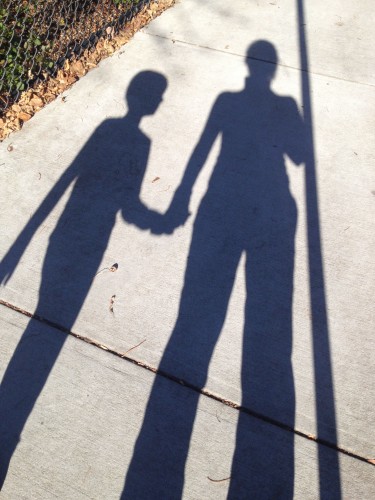

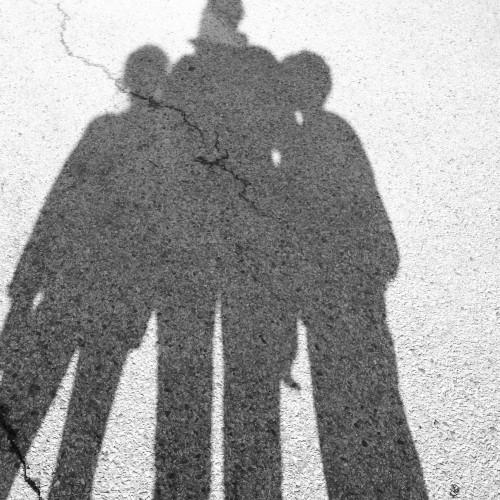
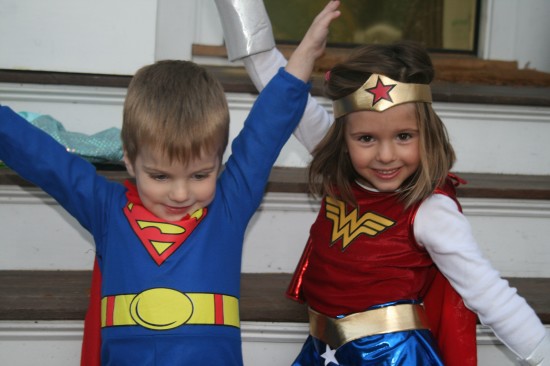
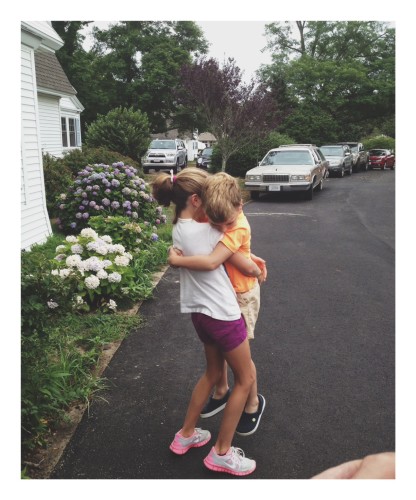 It was an emotional ride to go from the 24/7 togetherness of Legoland to dropping Grace and Whit off at camp last Thursday. You could view it as I spun it to them: so many memories to sift through while we’re apart! So much water in the well of closeness! But you could also say to yourself: wow that was a tough transition. And the truth is I’m still reeling from it.
It was an emotional ride to go from the 24/7 togetherness of Legoland to dropping Grace and Whit off at camp last Thursday. You could view it as I spun it to them: so many memories to sift through while we’re apart! So much water in the well of closeness! But you could also say to yourself: wow that was a tough transition. And the truth is I’m still reeling from it.